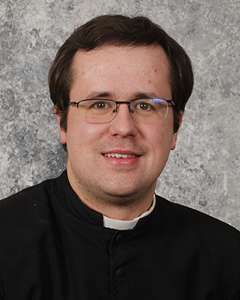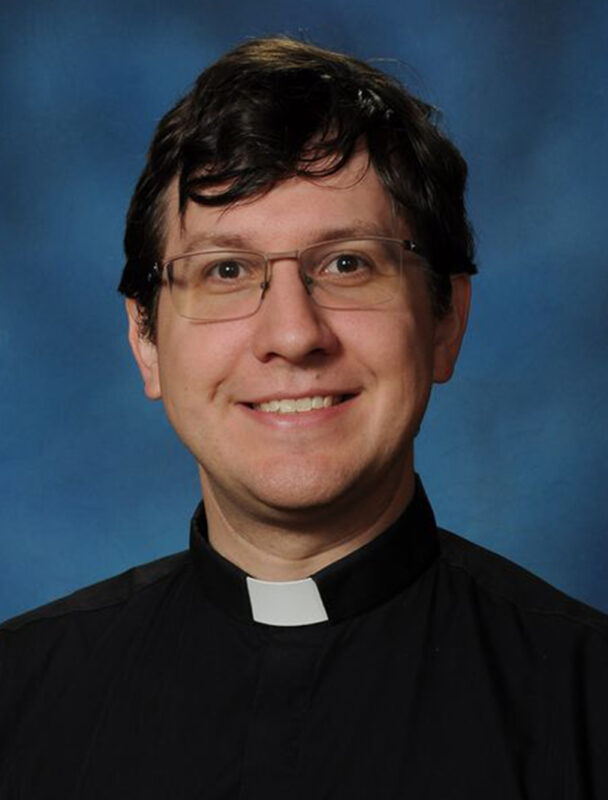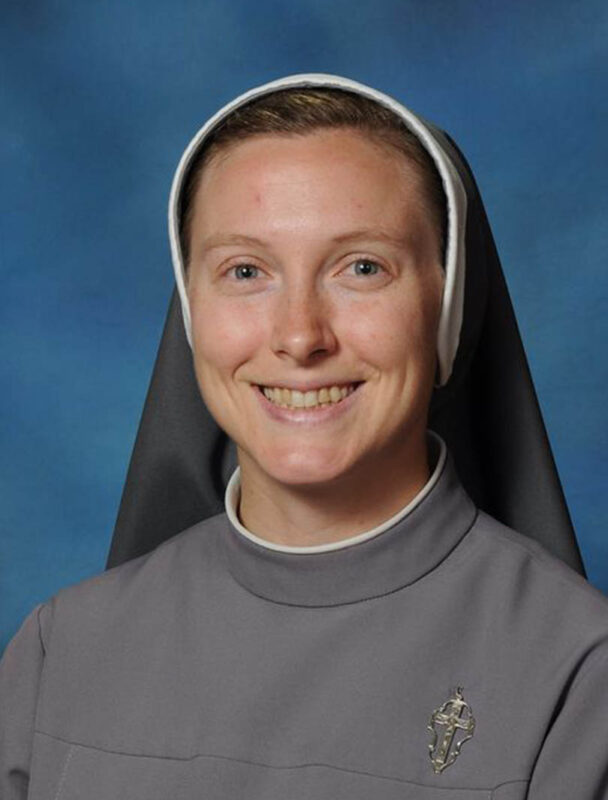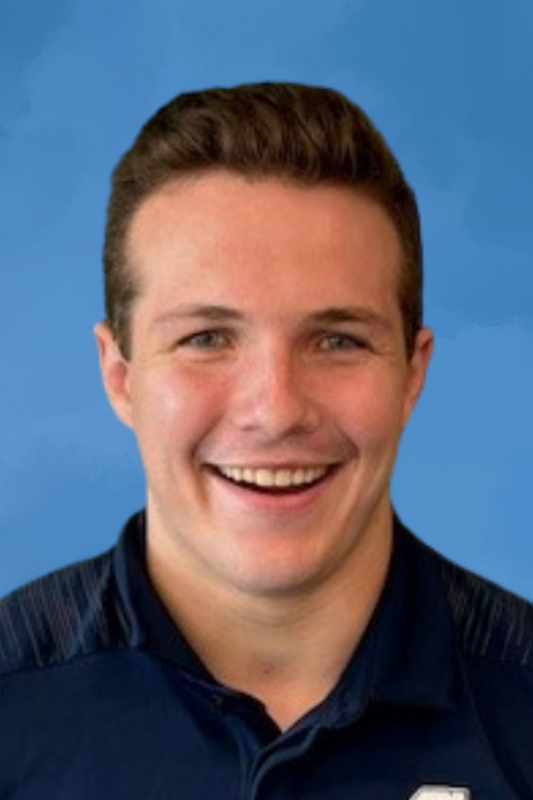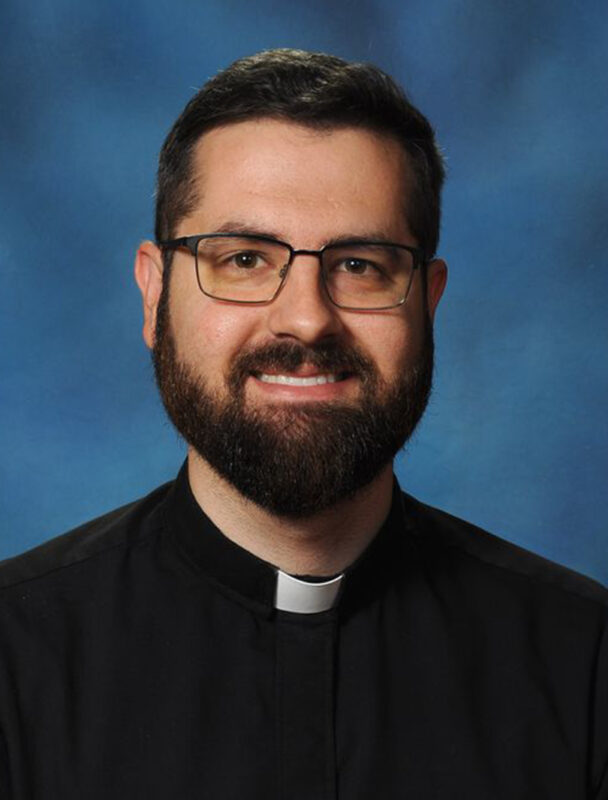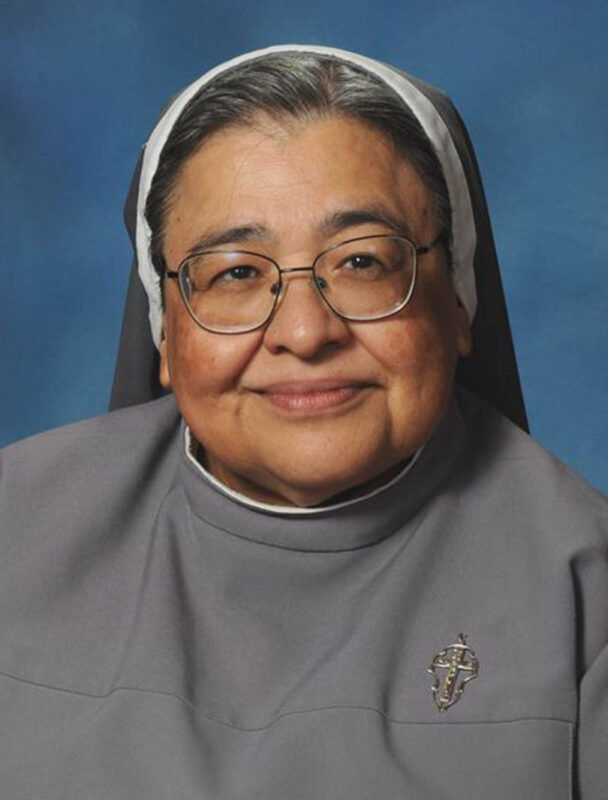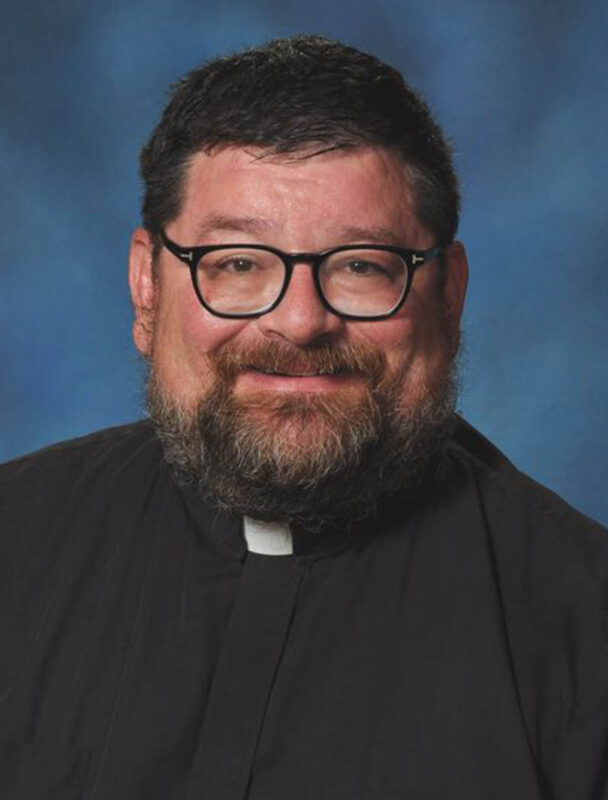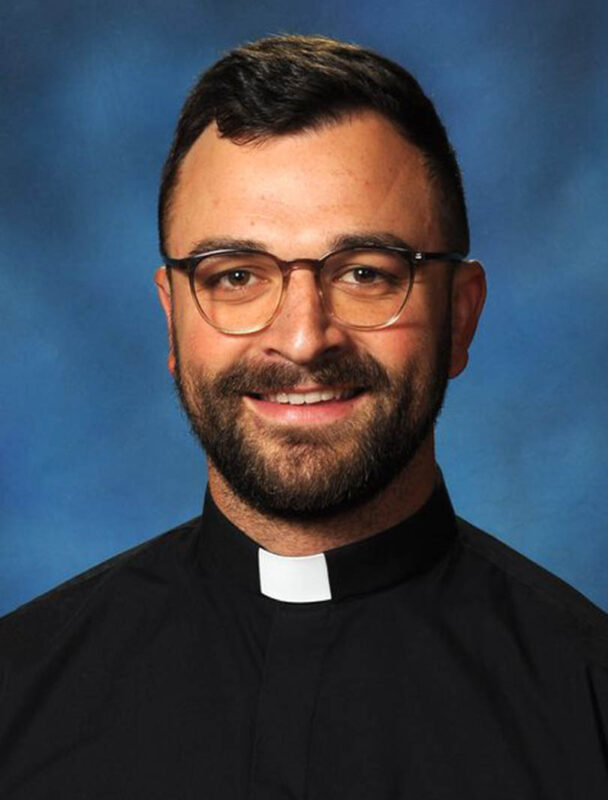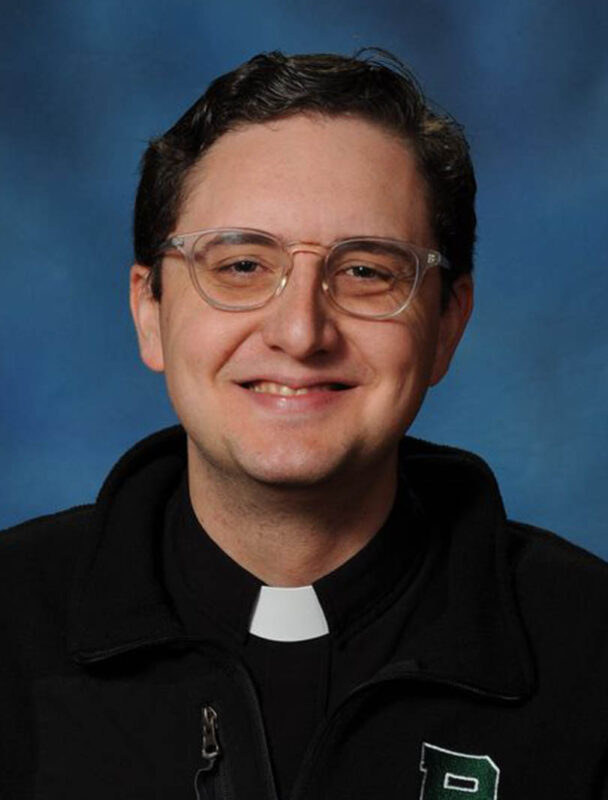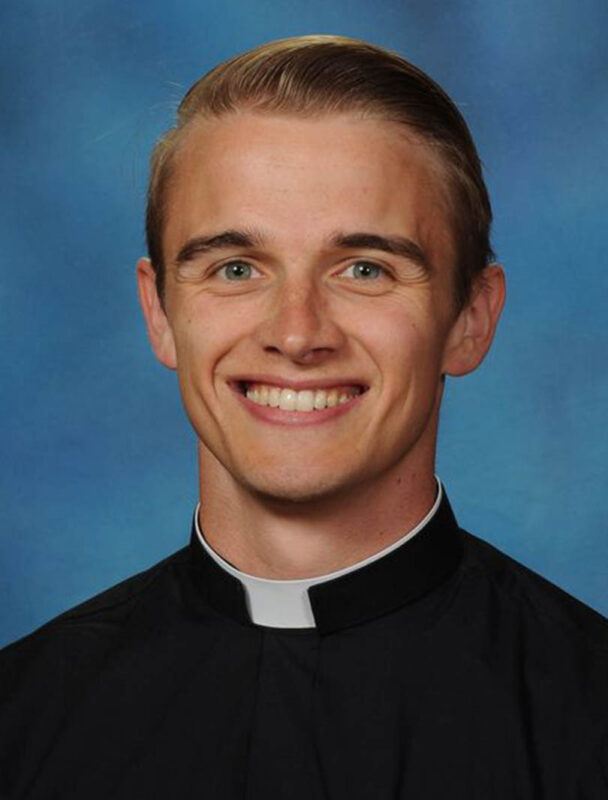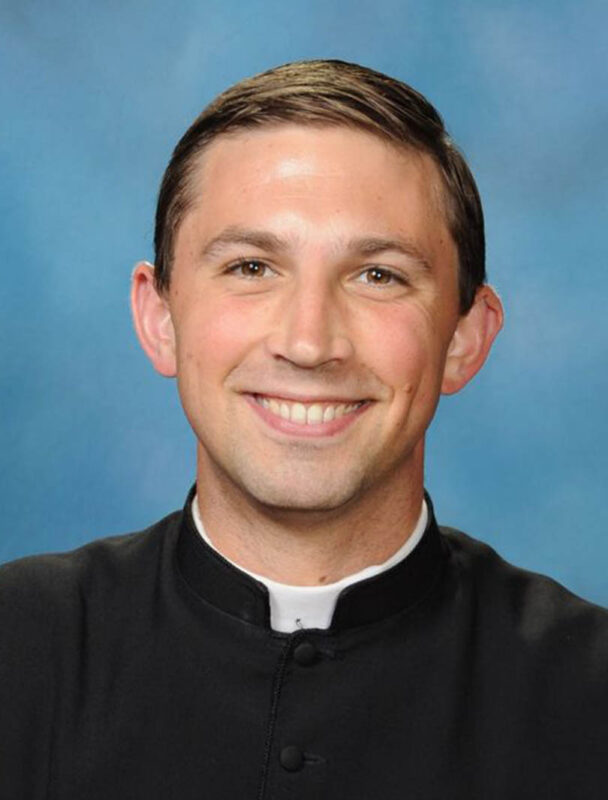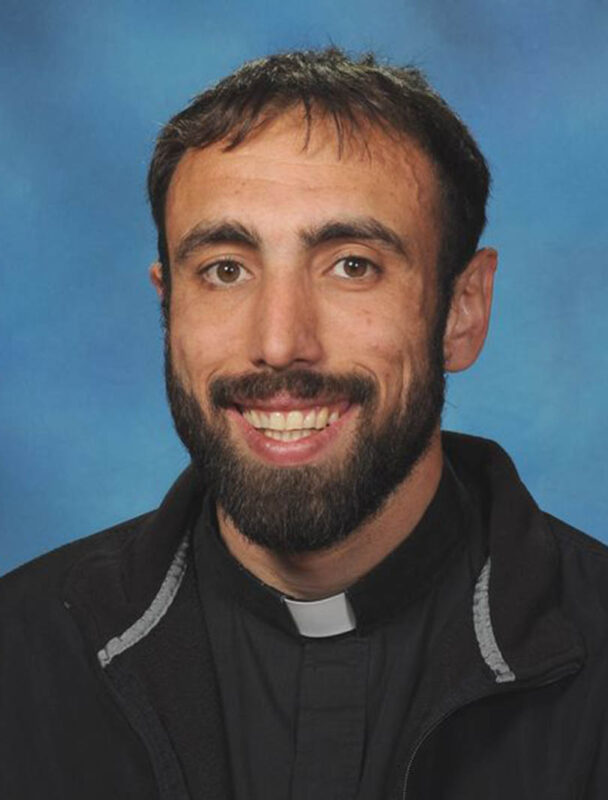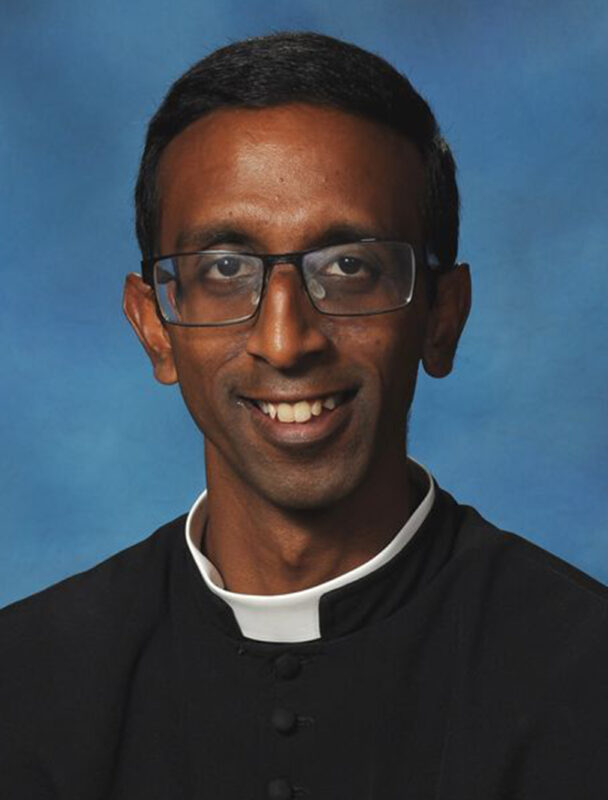Theology Department
The Theology Department assists parents in their responsibility to educate their children in the Catholic faith. Through formal religious instruction, catechesis, and liturgical events, Pius students are challenged to embark on a fearless search for truth and to live life as disciples of Jesus Christ. Due to the uniquely Catholic character of the school, all students regardless of their religious affiliation are required to take and pass theology courses in order to earn a Pius diploma.
PHOTO: We are blessed to celebrate Mass throughout the school day, with a few Theology classes coming together each period today and the past few days. Here is Fr. Matthew Kovar and a few sixth-period Theology classes.
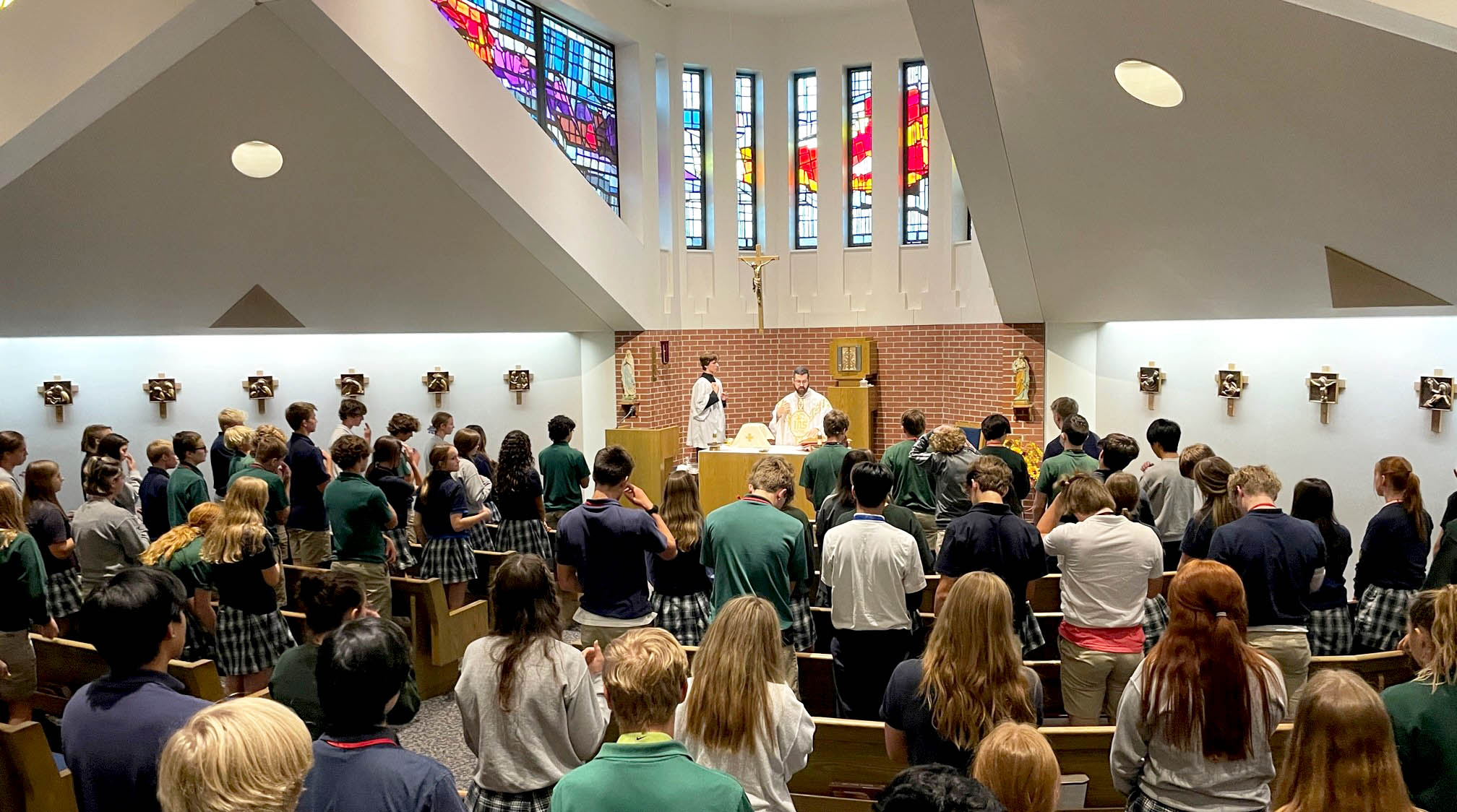
Course Offerings
Theology I
Theology II
Theology III
Theology IV
Introduction to Catholic Theology
Teachers in Theology
Course Descriptions
Theology I
Grades: 9
Length: Year
Introduction to Scripture – Old Testament: This course will introduce the students to an understanding of the nature and organization of Sacred Scripture as a component of Divine Revelation. Through the study of the Old Testament, the students will become acquainted with the story of creation, the Fall, and the unfolding of salvation history as the people of the Old Testament prepare for the coming of the Messiah. Through this study, the students will be introduced to historical figures with whom they can identify, events which will illustrate the dynamics of decision-making, and themes which will help define and interpret their response to the experience of God in their lives.
Introduction to Scripture – New Testament: The study of the New Testament will present an overview of the physical and cultural geography of the Holy Land at the time of Jesus, as well as a look at the historical context in which Jesus lived. This course will discuss the types of literature contained in the New Testament and probe the meaning of its lessons. The students will be led to a deeper understanding of the person and mystery of Jesus. This course will involve reading the Gospel accounts of His life and ministry, and studying their interpretation in light of Sacred Tradition. The students will examine the birth, growth, nature and mission of the Church as seen in the Acts of the Apostles, and in the letters and ministry of St. Paul. The students will also read and study selections from the “catholic epistles” and the Book of Revelation.
Theology II
Grades: 10
Length: Year
Department: Theology
Church History: The students will trace the history of the Church from its foundation by Jesus Christ to the present. They will have a clear understanding of the mandate and the mission of the Church, how far her field of action has expanded, and under what circumstances and under whose influences she has been hindered or helped. In addition to this, the students will learn the history of the Church in the United States. Throughout the course, the students will be made aware that Christ is the Lord of History, and He has promised that nothing, including the gates of Hell, will prevail against the Church.
Catholic Worship: This portion of the course is made up of three segments: prayer, Mass and the sacraments. The over-all aim is to assist the students in answering God’s call to holiness. They will be taught that their relationship to God is expressed through personal and liturgical prayer. Through an in-depth study of its parts, the students will come to understand Christ’s action and their response in the Mass. In their study of the sacraments, they will study the institution, matter and form of each sacrament, the graces received through the sacrament, and the characteristics unique to that sacrament. They will be taught that each sacrament is an encounter with Christ, and therefore a means to holiness.Theology III
Grades: 11
Length: Year
Department: Theology
Catholic Moral Life: In this course the students will learn the rational foundations for a Catholic moral life, with an emphasis on what the Church proposes as a just life, rather than on what they should and should not do. They will learn about God’s plan for the whole human race, and for each individual. They will learn how true knowledge of self leads to the knowledge of God’s goodness at work in their lives, and also leads to love as the fundamental response to this knowledge. They will learn about the true nature of the conscience, about their duty to form and follow their conscience, and about the unique role that Jesus and His Church play in the formation of a Catholic conscience. The students will also address specific moral questions and problems pertaining to sexuality and life issues from the perspective of the teachings of Jesus and His Church.
Social Justice: Social justice is a course aimed at educating the students on the major social issues of our time: hunger, poverty, racism, pro-life issues, liberation theology, labor, just war, peace, and all human rights including religious freedom. The students learn how to apply the principles of social justice to human need, using the great social encyclicals of the Catholic Church.
Theology IV
Grades: 12
Length: Year
Catholic Vocations:: An introduction to Catholic philosophical thinking is aimed at supplying the student with the tools to “think” with the mind of Christ and the Church amidst the numerous countervailing ideologies and philosophies presented by secular culture. The Church-endorsed thought of St. Thomas will be given as a true “handmaid” to understanding and integrating the Catholic faith with human reason. The study of Catholic vocations will present an overview of the idea of vocation as a call from God to attain the goal for which all were created: Heaven. The students will study the states of life in which these calls to Heaven, holiness and the apostolate are lived. They will examine the nature and duties of, and the preparation for the single life, the married life, religious life and the priesthood.
Apologetics: Apologetics, from the Greek word “apologia”, means to defend. This class is designed to help students examine the foundations for belief, the authoritative sources for belief, and the modern challenges to belief. The students will examine the basic teachings of the Catholic Church for which they will build a Catholic defense as they prepare to meet the secular thinking of the modern world at college or at work. This course will also include a short overview of the basic teachings of major world religions.

